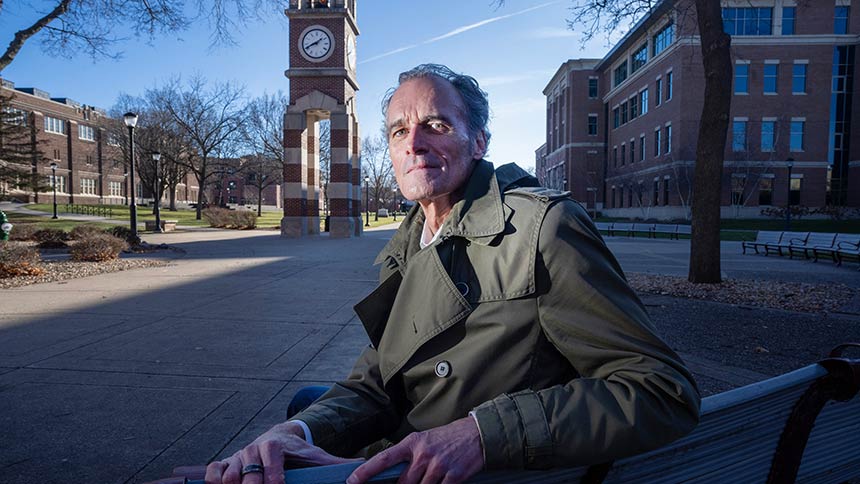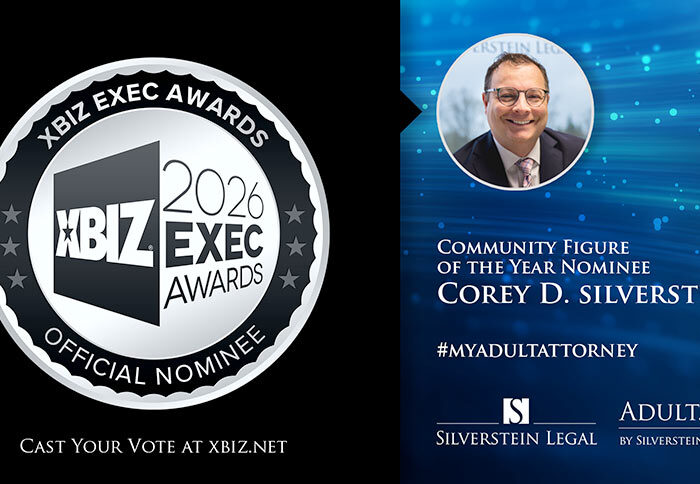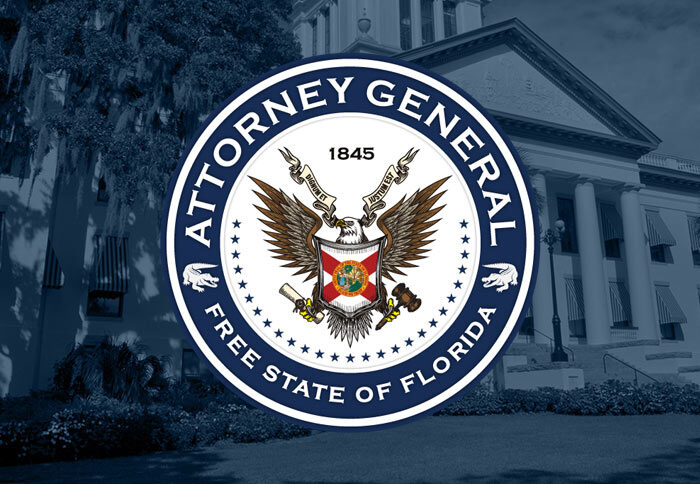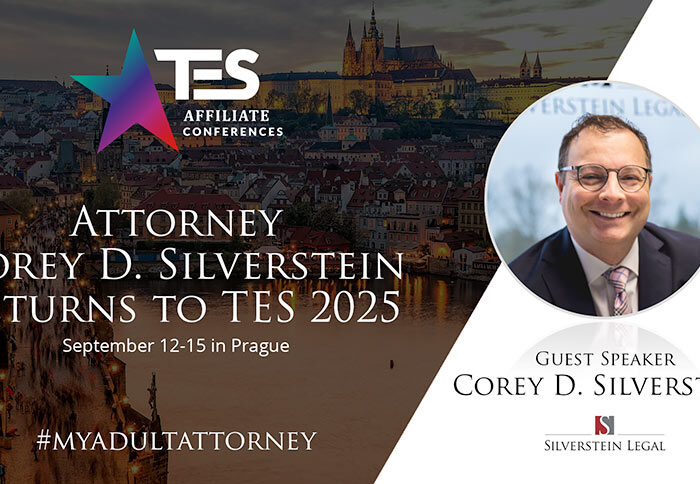Intelligent, iconic, and feisty, the industry’s premier attorney has been aptly nominated for XBIZ’s ‘Community…

Assume you will be outed.
That’s how Corey Silverstein, one of the only adult entertainment industry attorneys in the country, starts his consultations with clients considering dabbling in pornography, either to make some extra money or as a part-time hobby.
Less than 10% of Silverstein’s clients are exposed, he said, but forcing them to face the worst- case scenario helps them understand the stakes. He then walks them through real-life examples of outed adult content creators, including a name now familiar to many in Wisconsin: former University of Wisconsin-La Crosse Chancellor Joe Gow.
“I think it’s essential that clients understand what that could look like,” he said. “I want them to understand that by the very nature of how high-risk the adult entertainment industry is, that no one’s going to be on their side publicly anyway, and that, you know, it’s just unfortunate. That’s where the world is.”
Gow was fired late last year after the UW Board of Regents discovered he and his wife created sex videos, sometimes with adult film stars, and posted them on porn websites. He still retains his faculty appointment as a communications professor but has been on paid leave while UW-La Crosse moves to revoke his tenure.
The board’s personnel committee is scheduled to hear his case in a Friday public hearing and send a recommendation to the full board, which convenes next week.
“There’s definitely a reason to follow this particular case,” Silverstein said, referring to Gow’s fight to keep his faculty job. “Because one, there’s going to be many, many more of them. And two, there are actually so many (others) out there that people just haven’t discovered.”
An industry that began with a few thousand workers now numbers in the millions
For decades, the adult entertainment industry was made up of a few thousand people, most of whom worked for California studios. Those days are over, fueled by technology that allows anyone to create and post their own content and accelerated by COVID-19, when people found themselves unemployed or stuck at home.
A booming industry means there will likely be more cases like Gow’s, more headlines where workers are outed and more questions about how far employers should go in regulating their workers’ after-hour activities. The debate is even more salient for professors, whose employment is protected by tenure and who can only be fired for just cause.
“We’re in the middle of a backlash,” said Mike Stabile, director of public policy for the Free Speech Coalition, a trade group for the adult entertainment industry and its workers. “People don’t know how to deal with it. In the old days, you know, nobody ever thought that their son or daughter or parents would be involved in this, right?”
The Free Speech Coalition estimates more than 2 million people across the U.S. produce content for platforms such as OnlyFans, PornHub and XHamster. About 80% are women, 10% are men and another 10% are transgender or nonbinary.
Employment discrimination against adult content creators is common. The Free Speech Coalition surveyed about 600 of them last year. Three out of five said they had either lost out on a job offer or were terminated because of their sex work.
“What happens is someone who doesn’t like a person, whether it’s a co-worker or whatnot, uses it against them,” Stabile said, adding that the scandal and media attention associated with the outing then become a pretext for firing. “We need to get to a point where when someone does do that, the powers that be say ‘who cares?'”
Money or escapism are big draws for adult content creators
For now, the powers that be still very much care.
Taco Bell terminated an Arkansas employee when a customer complained about her appearances on several porn platforms. New York City fired an administrative court judge who moonlighted on OnlyFans. In a single Missouri high school, two teachers left after both were revealed to be selling sexually explicit videos online.
The majority of people involved in the industry are in it for the extra cash, especially K-12 teachers, experts said. But a sizable portion, including Gow, pursue it based on sheer curiosity.
Money was never on the mind of a mid-career professor at an Ivy League institution who started filming videos and uploading them onto porn platforms in 2018. The professor, who is not a client of Silverstein’s, independently reached out to the Milwaukee Journal Sentinel to share their experience on the condition neither they nor their institution be named for fear of losing their job.
“I’m at the place now where it’s like, well, what’s the big deal?” the professor said. “I have to step back and think, OK, to other people, this is absolutely a big deal.”
The professor has told three friends, and no family. They said they are careful, never talking about their job on camera and avoiding location-specific details in the shots. When one video took off to the tune of 100,000 viewers, they got nervous and removed it from a platform.
“Obviously, I don’t want to get caught, but there’s this thrill of just having it out there,” they explained. “I’m not blurring out my face. It’s really out there. It’s like you’re a high-wire performer working without a net. You don’t want to fall, but somehow it’s adding to the excitement.”
In Michigan, a law firm is built around the adult entertainment industry
Silverstein’s unusual law practice is based in a suburban Detroit office building. Clients across the country call in, seeking help to avoid being caught while also preparing for the possibility. They are doctors, lawyers, politicians, educators and nurses.
The firm’s website? myadultattorney.com. The pitch? “Size doesn’t matter!” Silverstein Legal helps individuals, as well as businesses small and large, with their legal needs.
Since Silverstein founded his firm in 2006, he said he’s represented hundreds of adult content creators, including several based in Wisconsin. One of his newest clients is a doctor who also teaches at a medical school; he said he receives “tons” of inquiries from medical school employees.
Based on Silverstein’s inbox and voicemails, he said the number of people interested in joining the industry have “jumped” in the past two years, especially in higher education and high-profile positions. He’s also increasingly fielding questions about leaving a full-time job for full-time work in the sex industry.
Silverstein’s consultations with clients are extensive. They talk about how they may hide their identity, such as using a different name, only showing certain body parts and filming in places that would not be recognized. They review employment contracts.
For many K-12 teachers, union contracts get a look, too. Clients may be lulled into feeling protected by their union, but that’s not always the case. Silverstein once represented a high school teacher whose union refused to financially support their legal representation, pointing to a carve-out for sex work.
Then it’s time for “the ultimate conversation,” Silverstein said. He asks clients to prepare, both financially and reputationally, for being outed. Those unwilling to entertain the possibility “end up in the worst situations, because it psychologically destroys them.”
Difficult legal landscape for adult content creators
Outed adult content creators sometimes seek legal recourse. Gow has already suggested he may do so if the UW Board of Regents fires him.
It’s often a losing battle, said Silverstein, who is not representing Gow. Employment contracts often have morality clauses requiring workers to meet a certain behavioral standard.
“They’re beefing up their employment agreements,” he said of educational institutions. “They’re defining what’s to be included in morality clauses, specifically to say ‘you will not engage in adult entertainment.’ They’re very, very blatant now.”
At UW-La Crosse, the employee handbook requires faculty to “exhibit a level of behavior supporting theuniversity mission.”
Confidential settlements and private arbitration obscure how often these claims arise, Silverstein said. When cases are filed in court, he estimated wrongful termination claims are won less than 30% of the time, and even less so when it involves an educator. Teachers are also the most disadvantaged in the court of public opinion, especially those teaching minors.
“Look, at the end of the day, sexuality, pornography, (these are) very taboo subjects,” he said. “Despite the fact that it’s 2024, far too many people still turn red at the very discussion of the topic.”
Originally published on Milwaukee Journal Sentinel. Contact Kelly Meyerhofer at kmeyerhofer@gannett.com or 414-223-5168. Follow her on X (Twitter) at @KellyMeyerhofer.
About Silverstein Legal
Founded in 2006 by adult entertainment lawyer Corey D. Silverstein, Silverstein Legal is a boutique law firm that caters to the needs of anyone working in the adult entertainment industry. Silverstein Legal’s clients include hosting companies, affiliate programs, content producers, processors, designers, developers, and website operators.
About Adult.Law
Adult.Law is a subscription legal service founded by attorney Corey D. Silverstein. Launched in 2020, Adult.Law aims to make legal counsel accessible to as many members of the adult entertainment community as possible. Adult.Law subscribers receive 24/7 access to legal resources specific to the adult industry and individualized 1-on-1 legal consulting from one of the most experienced legal teams in the space.




